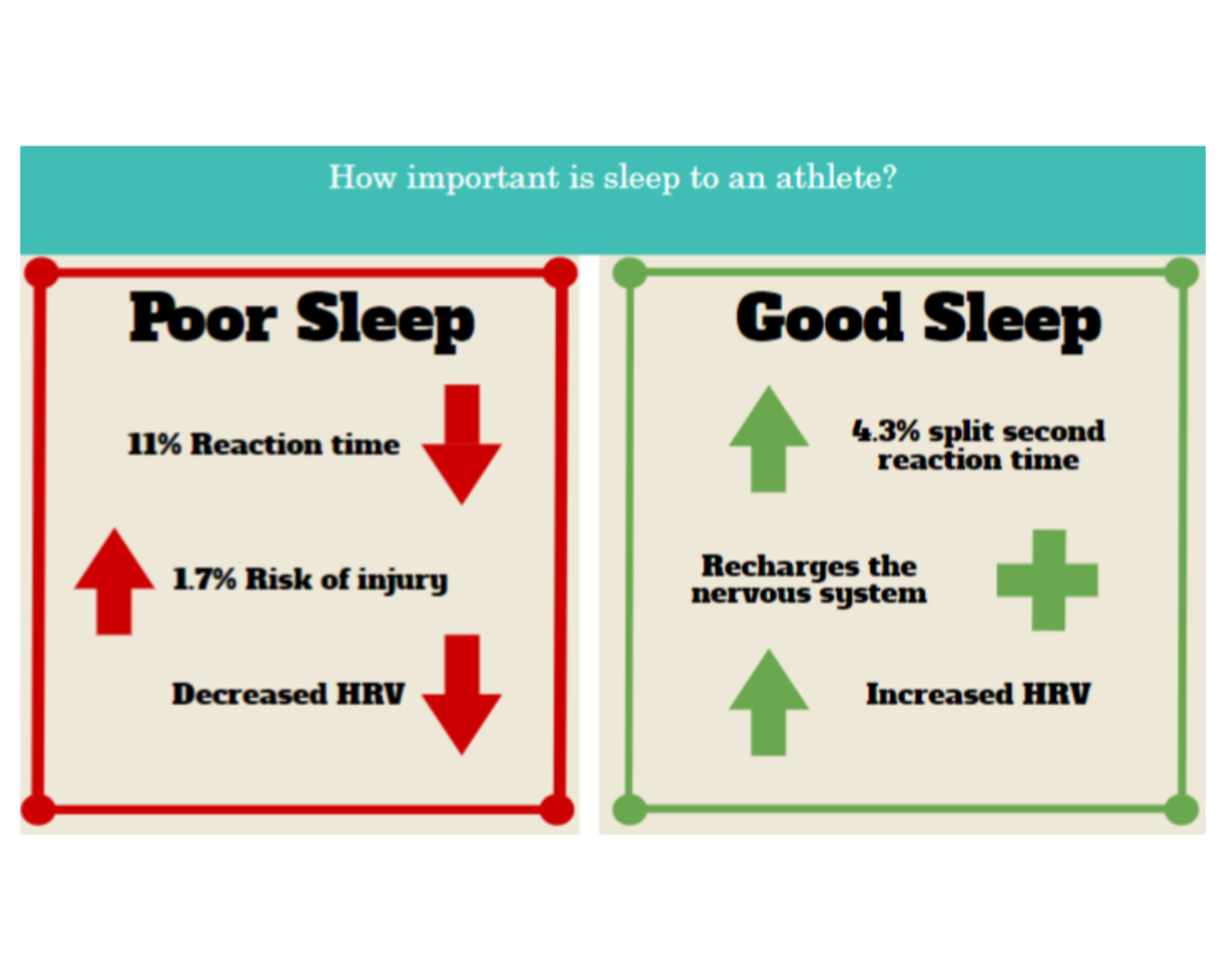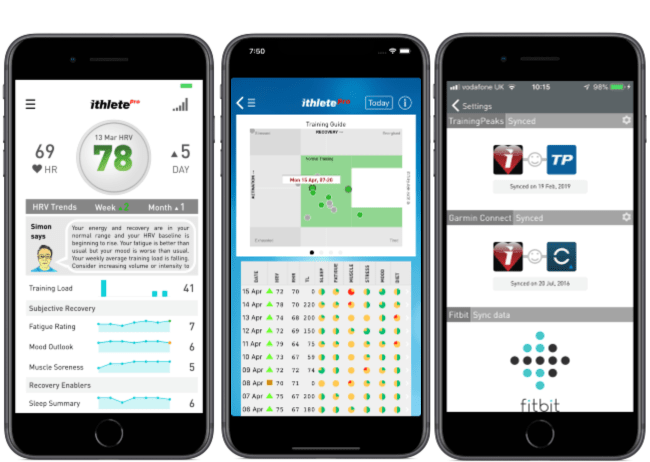Heart Rate Variability (HRV) is an excellent measure of overall health and fitness. Upward trends have consistently been shown to correlate with increases in health, fitness and sporting performance. So how do you get your baseline rising?
We often get asked how an individual can improve heart rate variability (HRV). Why? Because our users have come to understand that with small lifestyle changes you can significantly improve heart rate variability (HRV) and soon see the results you are striving for. The suggestions below offer practical tips and easy to implement changes. Try them one at a time and see how your body responds.

1. Sleep well, especially if you are training hard
The first 4 hours are especially important as this is where most of the night’s slow wave sleep occurs when human growth hormone and testosterone are produced. One of the first things most people notice when tracking HRV is how significantly sleep can impact their day to day readings.

2. Slow deep breathing
Yoga practices such as Pranayama breathing have been known for centuries to promote relaxation, stress reduction and concentration. The parasympathetic nervous system is particularly stimulated when breathing with a cycle time of around 10 seconds. One easy way to achieve this is to breathe in through your nose for a count of 5, then out through the mouth for another count of 5. Ideally do this just before sleep, when first waking, and any time during the day they feel stressed. You may be surprised at how much your HRV increases over the next few days – I was! For more tips check out 5 Top Breathing Hacks to Improve Heart Rate variability (HRV), Health & Performance.
3. Train below your aerobic threshold
Conducting the majority of your training below first lactate (or aerobic) threshold significantly reduces the body’s stress and inflammatory reactions compared to higher intensities. Both stress and inflammation lower HRV, whereas low intensity (Z1/2) training boost HRV and lowers your resting heart rate. Read about the research on Effects of Intensity and Duration of Exercise on HRV and Recovery or listen to an interview with Dr Phil Maffetone for plenty of practical tips on implementing this way of training.
4. Cold showers
Cold showers have been found not only to boost your HRV, but also to reduce your chances of getting winter colds and flu by up to 25%. The good news is that you only have to turn the tap to fully cold for 15-30s at the end of a hot shower to get the benefits.
5. Pay attention to your diet
A Mediterranean diet has been associated with raised HRV and longevity. The starting point is to eat lots of fresh fruit and vegetables, use both alcohol and caffeine moderately, and to avoid refined carbs and sugars whenever possible. We learnt a lot about this a few years back at a Sports Nutrition seminar and have continued to learn with interest since. When tracking your diet in ithlete we recommend being honest and not holding yourself to unrealistic standards. The top of the scale should be a healthy diet day by your standards. As you track diet and HRV together you will soon see a correlation.


Nice article and references
Hi my hrv normal around 30 31 how do I approve it more if it not right thank you
hi Alison – that sounds like too low a value for the ithlete scale – can you say which device or system you are using to measure with?
In terms of improvement – the 5 tips listed are the best ones I’ve come across, plus always try to sleep, eat well, manage & reduce mental stress, and train aerobically!
One thing not mentioned in this article is adequate hydration. It’s critical.
Hi Tom. Yes, adequate hydration is essential – if you’re dehydrated, your HRV will very likely be lower than normal. We’ve partnered with hydration experts PH nutrition to unerline thie imprtance of this https://www.precisionhydration.com/performance-advice/performance/hrv/
OH. One other thing here. HeartMath
Hi Tom. That’s item (2). There’s a variety of apps & technologies to stimulate the baroreflex resonance (I’ve worked on several), and slow deep breathing at a rate of 6 breaths / min is almost as effective.
My average HRV is coming it as 23, it seems to fluctuate daily between 11>35. I was diagnosed with Myocarditis. Should I be concerned? (I’m using the new Apple Watch 6 for monitoring)
Hi Trevor,
We really can’t comment on numbers produced by other systems, such as the Apple Watch. I don’t know what algorithms they are using or if they are accurate, and therefore if you need to be concerned. I would contact their support for help.
Best wishes, Laura
Hi Simon
Thanks for this great article. When I do intervals (with a kettlebell), I do short bursts of 15s and longer rests of 45 s. My hr when working never gets above zone 2 and at the end of a rest dips in to zone1, <60%. However, my 15s work is as powerful as I can make it. Some call this type of training "galactic and aerobic", or "anti-glycolitic". Where would you put this type of training on the hrv recovery spectrum? Thanks
Hi Fraser,
Short bursts of intense activity undoubtedly create a large recovery load that requires both rest and adequate protein intake to repair muscles. Strength & sprint athletes tend to find they become sympathetically overreached with high workloads ie higher resting HR and lowered HRV. There are a few articles on the website https://www.myithlete.com/?s=strength+ that delve into this further.
There is a deep dive into HRV trends with different kinds of training here that you might find interesting https://simplifaster.com/articles/interpreting-hrv-trends-athletes/
Best, Simon.
Hi! I am very active and train in all zones throughout the week, eat a vegan diet, my hrv is low 22-55, and recovery isn’t good, could my diet be part of the reason? I sleep well, only drink occasionally
Hi Clare
You need your diet to meet the needs of your body, which are certainly greater when you are training frequently. It could be micro or macro nutrients that you are missing, but recording what you are eating and talking to a qualified dietician is the way to find out. Hope that helps, and keep well!
If you are on hypertension medication do we have to be worried about low HRV ?
Hi Pavan,
The first thing I would ask is how you have determined you have low HRV? What did you use to measure it, was it accurate, what units was the result in, and what did you compare it to to decide it was low?
There aren’t many studies on hypertension medication that I’m aware of, but I would expect some of the medications eg beta blockers to give a small boost to HRV, because their mechanism is to suppress the sympathetic nervous system, which will leave the parasympathetic relatively more dominant.
For longevity, finding ways that work for you to increase your HRV is likely to be beneficial.
Hi all,
I am a person 175 cm tall and 85 kg, 50 years old, active, I train with weights 5 times a week for 1-2 hours, I follow a healthy diet, I hydrate well and I sleep 7-8 hours a night. I measure my HRV almost every morning with garmin forerruner 945 and polar verity sense. Daily readings are 90-100 Very high stress – red zone. I don’t know if I should be worried or not. Is it a good thing or a bad thing?
Hi Cristian,
Thanks for getting in touch. A couple of questions to help us better answer you…
1. For how long have you been taking ithlete readings?
2. How many red readings have you had in a row?
3. Have you looked at the ithlete Pro Training Guide? If so, what zone are these red readings in?
Thanks, Laura
I use the Whoop and my HRV average is 35… I’m only 30 years old. How do I get this improved ASAP?
Hi Amy,
We really can’t comment on data from other systems. However, the advice in this article is about raising your HRV regardless of how well it is measured. PAy attention to improving sleep, diet and life-stress, and taking some time to introduce slow deep breathing if you don’t already!
Best, Laura
Hi Amy,
We really can’t comment on data from other tools. However, the advice in this article is about raising your HRV regardless of how well it is measured. PAy attention to improving sleep, diet and life-stress, and taking some time to introduce slow deep breathing if you don’t already!
Best, Laura
Hi, i am 30 years old and been 3 years on hemodialysis, my hrv reading on garmin fenix 6 pro solar is 42ms avg, is it normal for my case or should i be worried ?
Hi Antonio,
Thank you for reaching out, however, we are unable to comment on data from third-party systems. If you would like to give ithlete a try there is a free trial available and we would be happy to take a look at your data.
Best, Laura